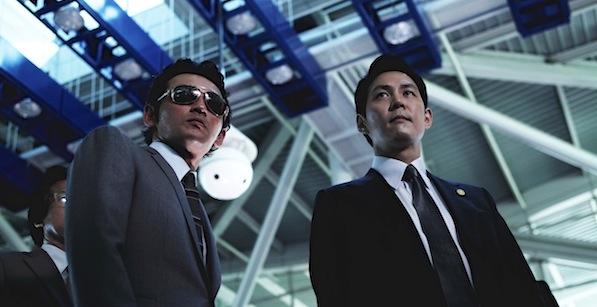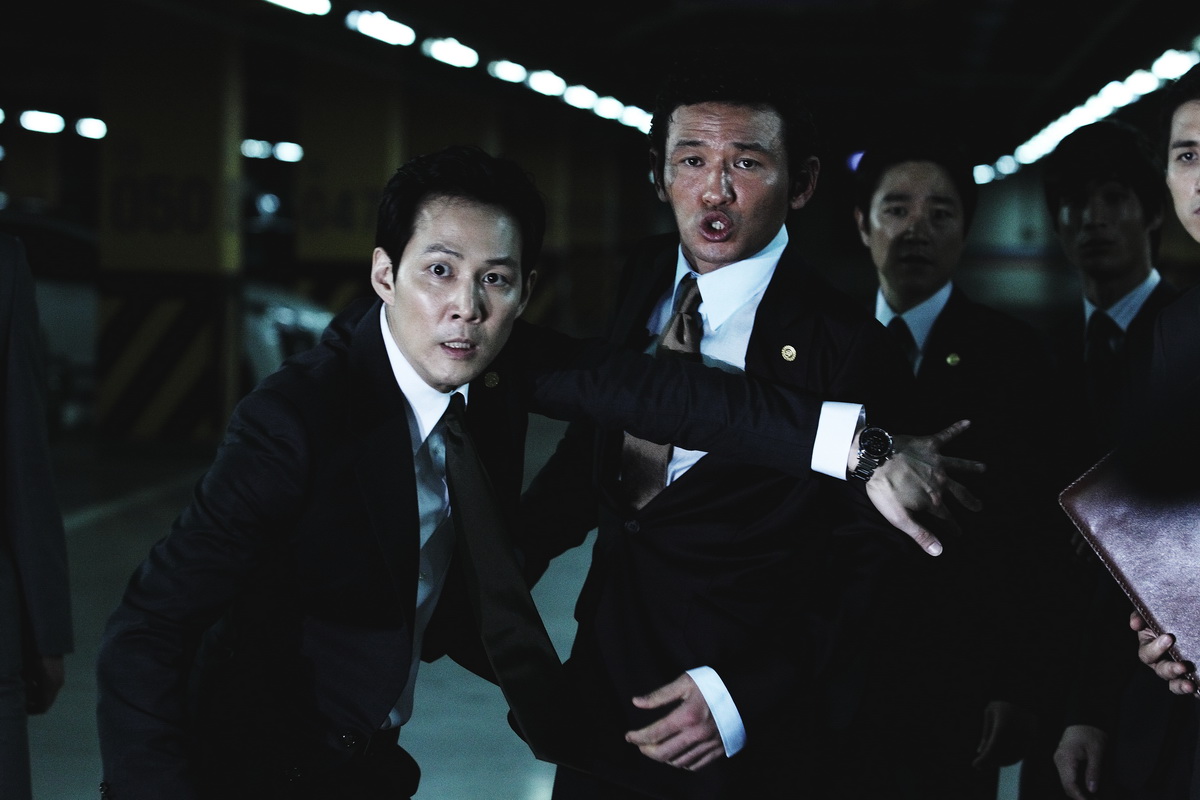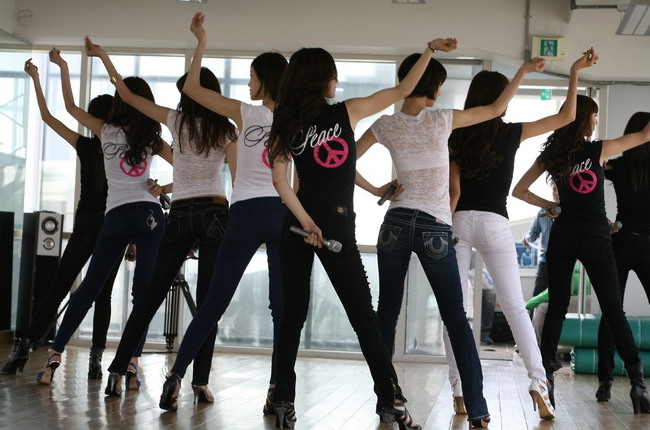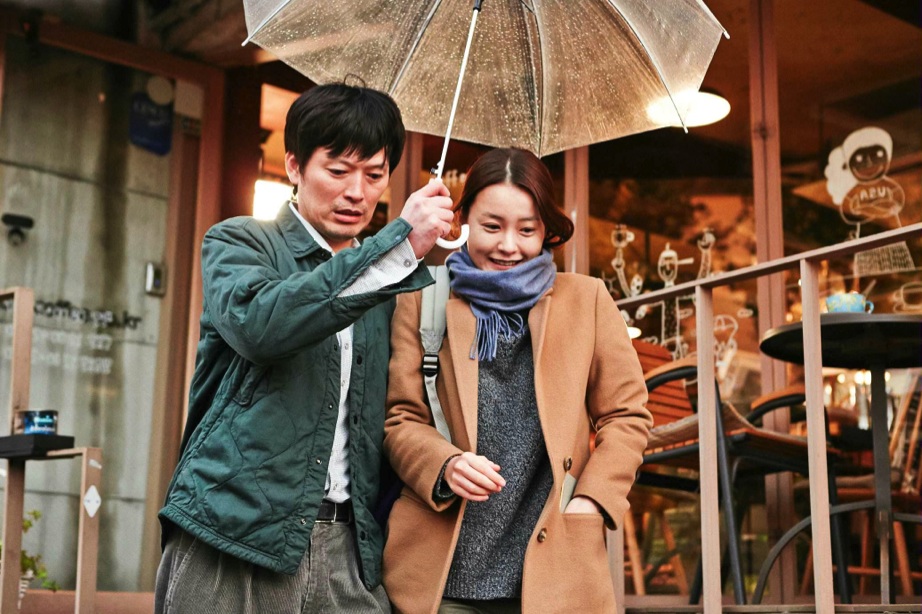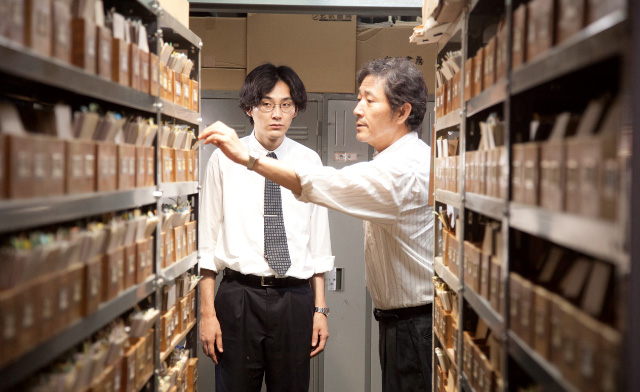A few weeks after the closing night of the 2012 Vancouver International Film Festival, the Granville 7—an old-school multiplex in the heart of downtown Vancouver with screens squirrelled away on four levels (including that funky little screen hidden between two floors)—was shuttered and slowly gutted. It was a failing theater, to be sure, with no investment in the new digital projection technology. But for two-and-a-half weeks every fall, it was the center of screening operations for VIFF: seven screens right downtown, only a couple of blocks from at the Vancity and Pacific Cinemateque satellite screens.
VIFF 2013 has been forced to spread its screenings through downtown Vancouver (and one satellite screen farther afield in the city) and the transition comes with challenges for the staff (a whole new set of venues means new layouts, organizational issues and audience confusion) and for longtime attendees who (myself included) had settled in to the convenience of the old VIFF. This year’s opening weekend weather didn’t help. Day-long drizzle isn’t new to VIFF, but it takes on an added dimension of frustration when you are hiking fourteen blocks from the International Village to the Pacific Cinemateque.
Given those challenges, the transition has been (a few glitches aside) largely manageable, thanks in large part to friendly volunteers keeping their cool through the procedural changes on a day-to-day basis and patiently directing patrons to the correct lines (it got pretty darn confusing at the Cineplex Odeon on the third floor of International Village, where space is so tight that lines were formed on two levels to keep crowds organized).
The signature programming—including the Dragons & Tigers line-up of more than 30 features from Asia, the Spotlight on France sidebar, and the Canadian Images’ focus on homegrown cinema—remains intact but largely packed into the first week and a half of screenings (before a number of theaters drop out of the line-up). Which makes VIFF 2013 just as lively as ever as it picks up dozens of films fresh from a North American premiere in Toronto and shares plenty of programming choices with the much more prominent New York Film Festival, such as VIFF opening night film Nebraska, Palm d’Or winner Blue is the Warmest Color, Locarno prize-winner What Now? Remind Me (which skipped Toronto entirely and made its North American debut concurrently at VIFF and NYFF), Tsai Ming-liang’s Stray Dogs, Agnieszka Holland‘s Burning Bush, Hirokazu Kore-eda’s Like Father, Like Son, and Roger Michell’s Le Weekend.
The Dragons & Tigers section, curated by Tony Rayns and Shelly Kraicer, is the big draw for me, however, and I spent much of my six day stay sampling the new Asian cinema. Not as much as I had hoped to see due to scheduling issues (too many highlights premiered after I left) but enough to see an interesting array.
New World (South Korea), the festival’s obligatory action blockbuster (there is one every year, and it’s always a VIFF highlight), stirs ideas from the Infernal Affairs trilogy and Johnnie To‘s Election films into the Korean gangster genre. There’s an undercover cop (Lee Jung-Jae), a sprawling crime empire with a sudden power vacuum after the boss is killed, and an obsessive detective (Choi Min-sik of Old Boy) who plays deadly games with the fight for succession. Director Park Hoon-jung is more observer than participant, watching the power plays, double-crosses, and conspiracies play out without really investing in any of the players, and Lee is almost blank as the undercover operative as loyal right-hand man to unpredictable heir apparent Hwang Jeong-min. Yet it’s surprisingly satisfying as it plays out to the inevitable end and beyond: the flashback coda just affirms the new world order with a touch of John Woo’s criminal brotherhood. This is actually out on DVD and Blu-ray in the states already, just in case you need your hit of South Korean gangster gamesmanship.
9 Muses of Star Empire (South Korea), the only Dragon’s & Tigers competition film I saw, is a classic making-of-the-band documentary, except that it’s about South Korea’s K-pop industry, where it’s all about manufacturing-of-a-band. 9 Muses is a vocal group of nine young women created by Star Empire, the fifth-largest music producer in South Korea (according to director Lee Hark-joon, who played roadie to the band as part of his access deal with the company). There’s nothing new to the character drama of young women under pressure (it takes 3-5 years to develop, train, and launch a K-pop group) but it is notable in that it’s not a matter of internal competitiveness and conflict as much as anxiety, self-doubt, and depression. This is a high-stress life, thanks to long days learning frankly uninspired dance moves and crap songs, and then getting dressed down for failing to put it across in their early performances. Most interesting, however, is the sheer mercenary commercialism of the industry. These girls are just cogs and, as we discover, relatively interchangeable, as long as they meet the requirements of the concept. Even singing isn’t a necessity. As the CEO remarks, “Not all nine members can be good singers. And bands like that don’t exist in real life.”
Our Sunhi (South Korea) finds Hong Sang-soo back in his wheelhouse of men talking without communicating over drinks, men and women hooking up without connecting, and filmmakers presented onscreen as dissolute losers skating by on reputations. My, Hong has an optimistic view of his chosen profession. It’s funny, to be sure, and Hong leans on his ease with timing and deadpan delivery (visual as well as performance), but it’s awfully familiar and lacking the sharp bite of more satirical films.
The Great Passage (Japan), a perfectly enjoyable light drama about the creation of a modern dictionary of spoken, living language, is Japan’s entry for the Foreign Film category of the Academy Awards. It’s no documentary or dramatization of a true story but director Ishii Yuya is quite taken with the meticulous process of the project and the way that a shy social misfit (Ryuhei Matsuda, earnest and out of step) in sales finds his ideal fit in this all-but-neglected department of a major publisher. In fact, the project becomes the crucible for challenges, triumphs, and creative fulfillment for almost everyone involved, even if the drama (which plays out over fourteen years) is all lower case. Ishii has an affection for misfits and outcasts and enjoys the small victories and unconventional romance of these characters, all of whom carve out their own modest place in the world.
Soul (Taiwan) can’t quite decide if it’s a tale of ghosts and possession (“I saw this body and I took it”) or a serial killer thriller seeped in schizophrenia and paternal complicity, and it loses the characters and the story in the strangely savage commitment of an elderly father (Jimmy Wang Yu) to protect the stranger that his son has become. Director Chung Mong-hong sets the film on a mountainside agricultural operation and shoots much of it on misty nights and damp, gray days, cutting from the atmospheric world of crops carved out of the jungle to close-ups of predatory insects and lush orchids in a primal world of beauty and death. What it all adds up to, I can’t say. Joseph Chang makes for yet another enigmatic-to-the-point-of-vague central character while Jimmy Wang Yu’s isolated farmer shows a real gift for the art of murder and cover-up. Yet another hanging thread in a film that ends up awfully frayed for such precise imagery.

